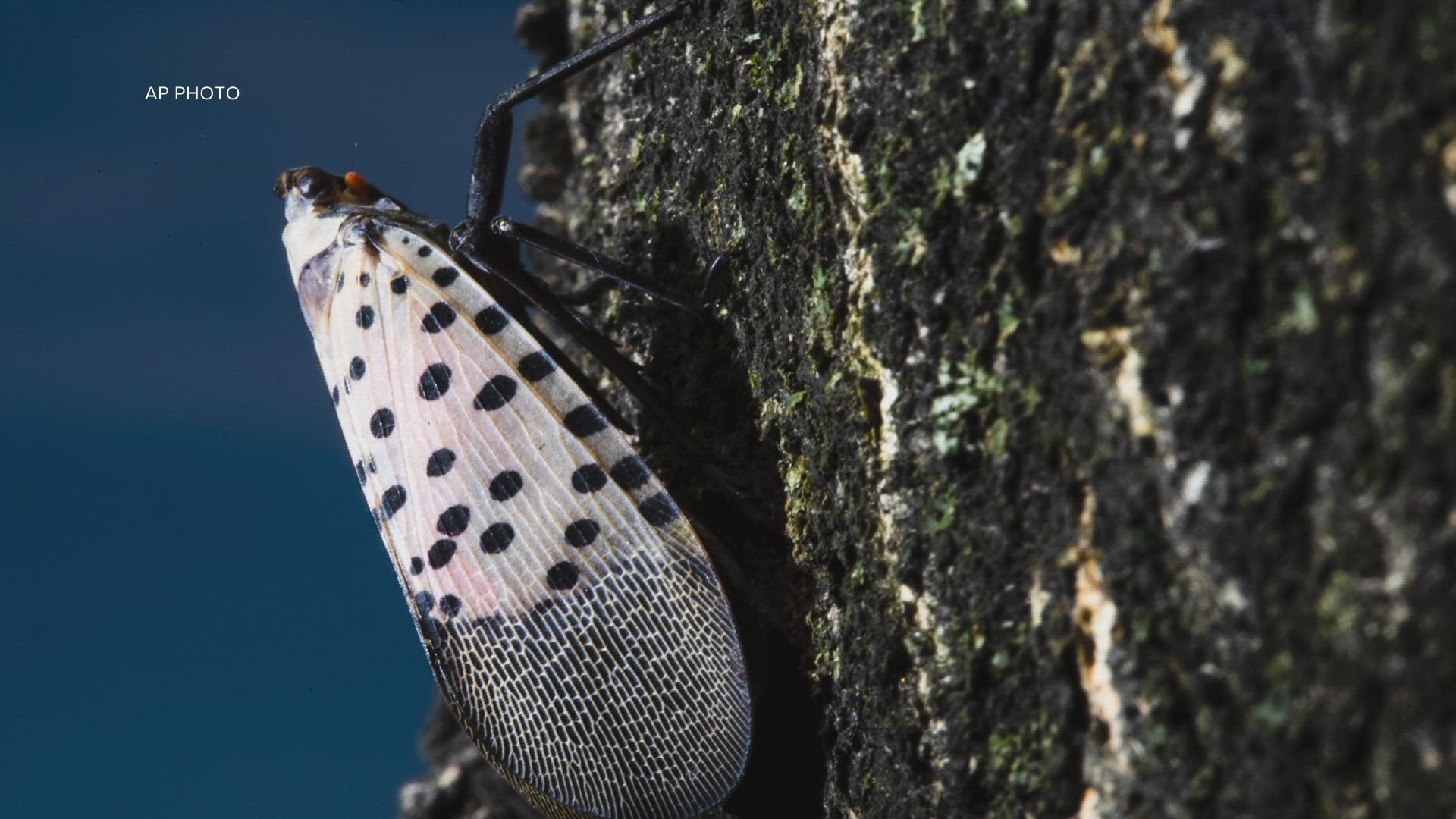PRINCE WILLIAM COUNTY, Va. — Prince William County officials are once again on the hunt for invasive species first spotted in Northern Virginia in March of 2021.
While the presence of the pest is currently limited to a few areas of the county, the Prince William County Public Works, Mosquito and Forest Pest Management Branch is looking for the public’s help finding and reporting the pest in efforts to control the spread.
“It’s still fairly early at this point. We’re still trying to look for areas where it is,” said Forest and Pest Management Branch Environmental Analyst Valerie Huelsman in a press release. “That’s why we’re encouraging people to report it when they see it."
Spotted lanternfly eggs can survive the winter. Now that it is spring, eggs are beginning to hatch from egg masses that look like small mud smears, officials said.
Spotted lanternfly eggs can survive the winter. Now that it is spring, eggs are beginning to hatch from egg masses that look like small mud smears.
Spotted lanternflies can lay their eggs on a wide variety of surfaces such as tree bark, bricks, lumber, decorative stone and even train cars, trucks and other vehicles, which is one way they spread geographically. When trains or trucks loaded cargo move around with egg masses, so does the spotted lanternfly.
“If they find them, they should try to destroy them,” Huelsman said of egg masses. “You can scrape them into a baggie filled with hand sanitizer, shake it around to make sure they’re all covered. Double bag that and throw that away. That’s a safe way to get rid of egg masses.”
The lanternfly evolved in Asia and has no natural predators in the Americas. The U.S. Department of Agriculture (USDA) is still figuring out the best way to go after them.
“There are some things that are learning to go after them and there’s a lot of work being done by the United States Department of Agriculture and others to bring in their native predators that can help to suppress the population. Those predators will work a lot better than the secondary predators that are finding them. Birds, spiders, and predatory insects are starting to go after them, but they’re not going to be able to suppress at levels enough to control them,” Huelsman said.
Virginia Department of Agriculture Consumer Services, the Virginia Cooperative Extension Prince William Unit, or VCE, and Mosquito and Forest Pest Management Branch, the USDA and the Virginia Department of Forestry are all working together to try and control the spread of the spotted lanternfly.
The county also has a reporting survey https://bit.ly/reportSLFinPWC where people can alert the PWC Spotted Lanternfly Management Team of any suspected spotted lanternfly activity.

